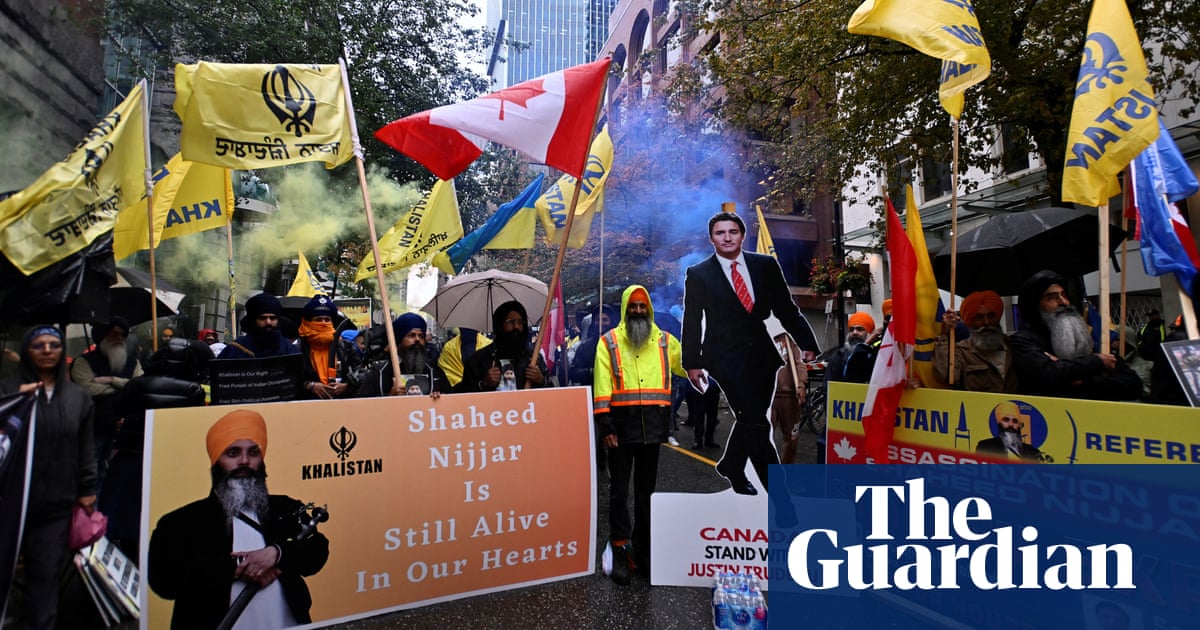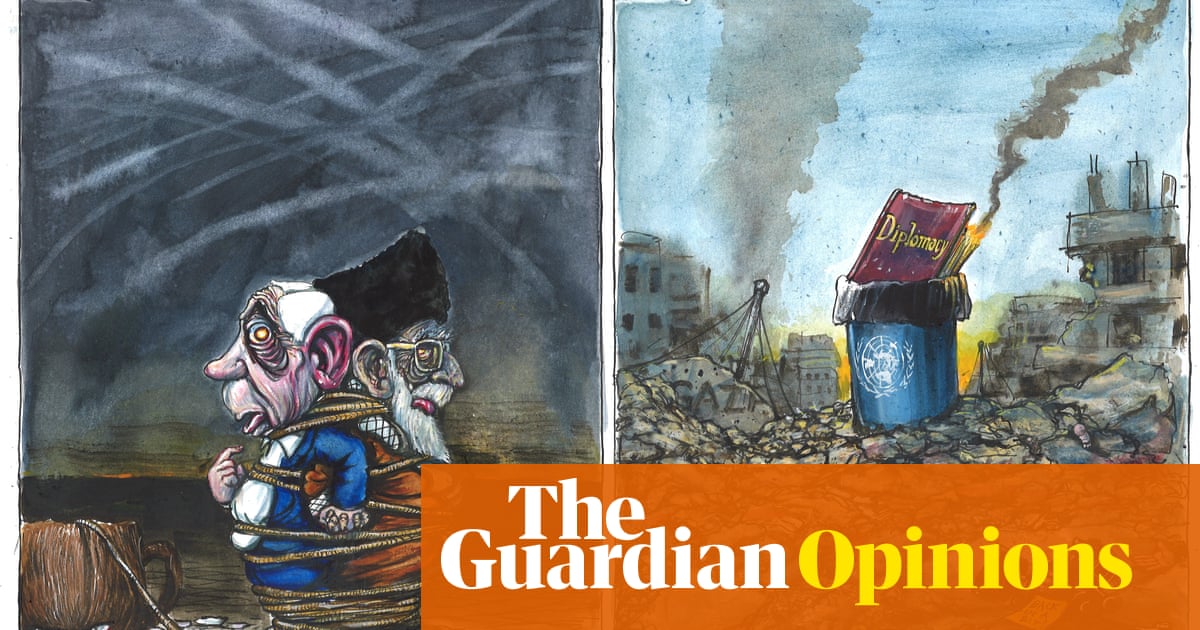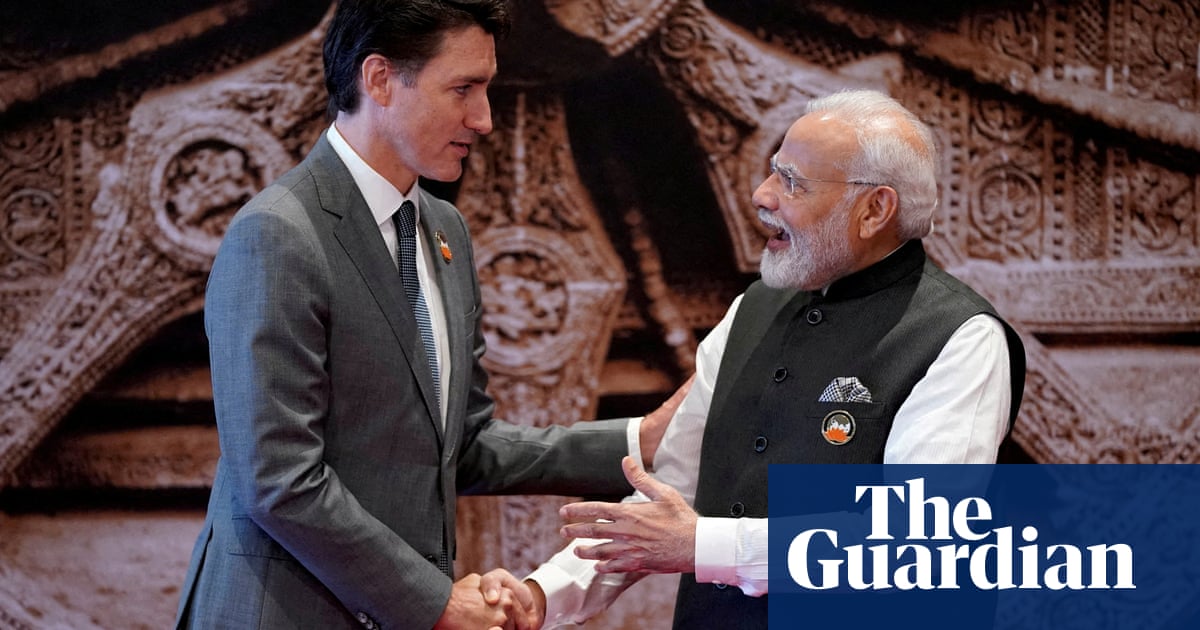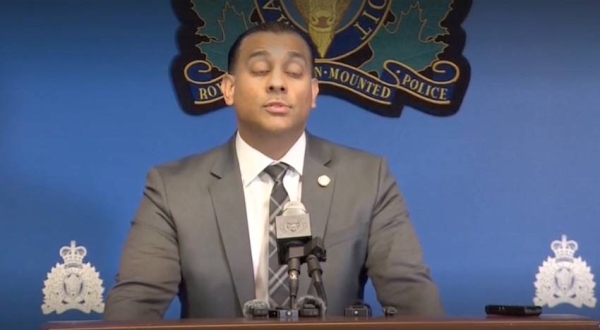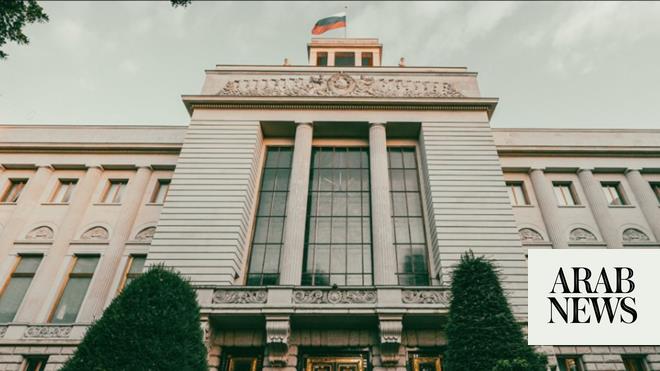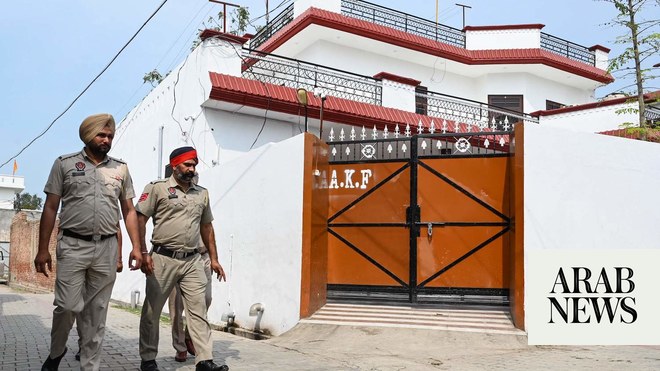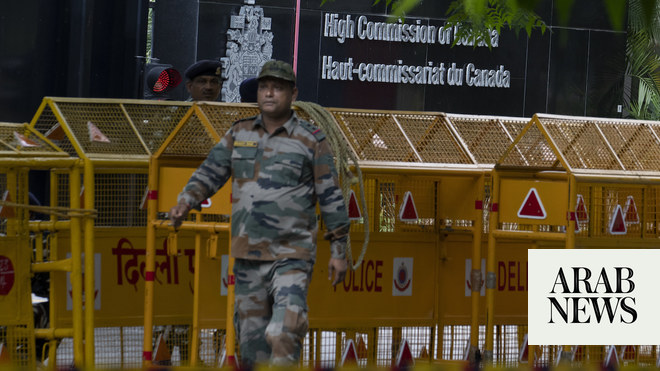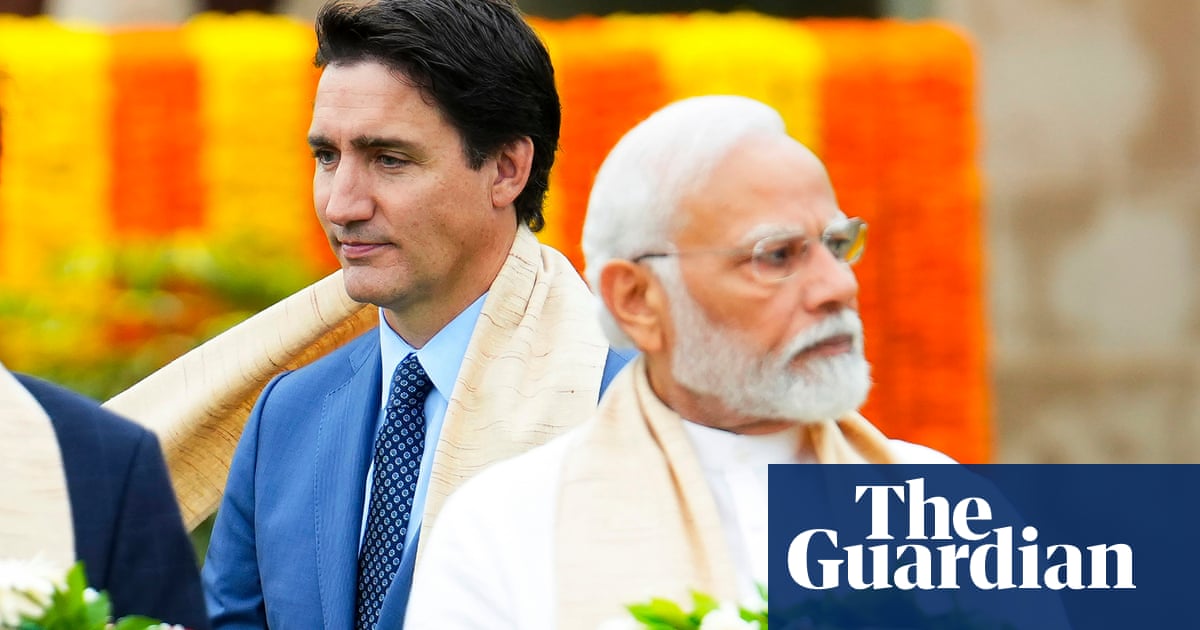
Canada and India have announced tit-for-tat diplomatic expulsions after Justin Trudeau’s explosive allegation that New Delhi was behind a state-sponsored assassination on Canadian soil – accusations that India derided as “absurd”.
Speaking on Tuesday, the Canadian prime minister stood firm on the allegations that India was implicated in the death of the Sikh independence advocate Hardeep Singh Niijar, who was shot dead in Surrey, British Columbia, in June.
“India – and the government of India – needs to take this matter with the utmost seriousness. We are doing that,” Trudeau said. “We are not looking to provoke or escalate. We are simply laying out the facts as we understand them.”
Trudeau described the allegations as “extremely serious” and warned there were “far-reaching consequences” in international law. “We’re going to follow the evidence and make sure that the work is done to hold people accountable,” said Trudeau.
Late on Monday, Canada’s foreign minister expelled Pavan Kumar Rai, the most senior member of India’s foreign intelligence agency operating in Canada.
Indian authorities retaliated soon after, ordering a senior Canadian diplomat to leave the country within five days after summoning the high commissioner, Cameron Mackay. Canadian officials have not identified the diplomat, but local media reports have named Olivier Sylvestre, the station chief for Canada’s intelligence agency in New Delhi.
Canada also updated its travel advice on Tuesday, warning visitors to exercise a high degree of caution in India due to the threat of terrorist attacks throughout the country.
The twin expulsions have escalated tensions between the two G20 members, derailing talks on a possible bilateral trade agreement. But the row also raises the prospect of drawing in mutual allies and transforming the feud into a broader diplomatic quagmire.
A senior Canadian official told Reuters that the country had worked “very closely” with the United States on the intelligence behind Trudeau’s accusation.
In a statement on Tuesday, the US state department said it was “deeply concerned” by the allegations and that it was “critical” that Canada’s investigation proceed, but did not confirm officials provided intelligence to their Canadian counterparts.
The British foreign secretary, James Cleverly, said his government
backed a Canadian investigation, adding that he expected India’s “full cooperation” in the inquiry. “Obviously, we have a very strong relationship with Canada, a very strong relationship with India,” he said.
But Indian’s ministry of external affairs said the expulsion reflected “growing concern at the interference of Canadian diplomats in our internal matters and their involvement in anti-India activities”.
India once again levelled allegations that Canada was giving safe haven to “Khalistani terrorists and extremists” which it warned undermined India’s “sovereignty and territorial integrity”.
India has long demanded that Canada take action against the Sikh independence movement, which is banned in India but has support in countries with large Sikh diaspora populations, such as Canada, Australia and the UK.
Canada has the largest population of Sikhs outside Punjab, with about 770,000 people – 2% of the country’s population – reporting Sikhism as their religion.
On social media, prominent Indian figures sharply criticized Trudeau. One lawmaker called the Canadian prime minister “the biggest joker masquerading as a leader that currently exists on the planet” and suggested authorities reduce security for the Canadian high commission. A retired general, Gaurav Arya, said the diplomatic mission should be closed and warned the Canadians to “shut shop and leave, before you are thrown out”.
Trudeau’s Monday announcement that Canada’s security agencies believe “agents of India” played a role in Najjir’s death prompted sent shockwaves through the country and prompted calls for the federal government to disclose more details of the investigation.
“The prime minister needs to come clean with all the facts. We need to know all the evidence possible so that Canadians can make judgments on that,” said Pierre Poilievre, leader of the opposition Conservative party.
David Eby, the premier of British Columbia, said: “I call, yet again, on the federal government to share all relevant information related to any known ongoing foreign interference and transnational organized crime threats with our provincial authorities and our government, so we may act in coordination and protect those at risk.”
Police have still not publicly identified the two masked men who opened fire on Najjir as he sat in his truck at the rear entrance of the Guru Nanak Sikh Gurdwara. The two men fled on foot down a street, through a park and into a waiting car. In August, an integrated homicide team told reporters a silver Toyota Camry was the suspect’s getaway vehicle and authorities were searching for a third suspect.
Nijjar’s son Balraj, 21, said on Tuesday he had always suspected India was behind the killing. “It was just a matter of time for when the truth would come out,” he told the CBC.
The World Sikh Organization said the allegations confirmed “what Sikhs in Canada have known for decades”, that India actively targets dissidents aboard.
Gurpatwant Singh Pannun, who heads Sikhs for Justice and was Najjir’s lawyer, had previously told media that his client was warned by CSIS of threats against his life in the days leading up to the shooting. Pannun has since called for the immediate expulsion of the Indian high commissioner, Sanjay Kumar Verma.
Canada’s immigration minister, Marc Miller, posted on social media that Najjir became a Canadian citizen in 2015, disputing “baseless rumours” that the father of two did not have citizenship.
The revelations come only weeks after the federal government announced the head of a public inquiry into foreign interference in Canada.
Dominic LeBlanc, who serves as the public safety and democratic institutions minister, said the Quebec judge Marie-Josée Hogue would be tasked with “examining and assessing foreign interference by China, Russia and other foreign states and non-state actors”, calling the issue a “global challenge” for democracies.
On Tuesday the New Democratic party leader, Jagmeet Singh, wrote to Hogue, asking for India to also be included in the public inquiry. “In my experience, as a Sikh-Canadian, there have always been suspicions that India was interfering in the democratic rights of Canadians,” Singh wrote in the letter. “Yesterday’s announcement by the Prime Minister confirms that these suspicions are valid.”




